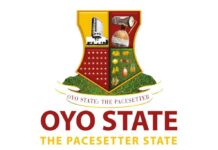The initiative was to eliminate proxy certification, reduce data loss and develop robust monitoring of seed fields activities per time per place. It would also grow local economy; avail the country better foreign exchange while at the same time, allow farmers to reap bountifully from their efforts on cassava production.
The Director General of the NASC, Dr. Olusegun Ojo at the International Institute of Tropical Agriculture (IITA) told stakeholders that over 60 seed certification officers (male and female) has undergone three separate trainings on the application and use of CST in South-West, South-East, South-South and North Central where we have the six pilot states for this project.
Ojo, who was flanked by the Project Director of the Building an Economically Sustainable, Integrated Cassava Seed System (BASICS), Hemant Nitturkar and the Head of Germplasm Health Unit and Virologist, Lava Kumar, said: “This event is therefore to officially mark the commencement of its use in the pilot states.”
The NASC DG hinted that, “To underscore the importance of this technology, during one of our trainings in the North central, four officers of the National Agricultural Extension research and Liasion Services (NAERLS) were also trained on the use of the app, this is in furtherance to the MoU signed with the institution on dissemination of seed information to the public.”
Ojo said NASC under him through the support of BASICS is reengineered to ensure that there is real time online certification of cassava seed fields.
“The Cassava Seed Tracker is the first of its kind anywhere in the world and it is easy to use and effective. It is not limited by network as it can work online and offline. Another major advantage is that it serves as a meeting point for producers, marketers, processors, regulators and policy makers. Each stakeholder can generate information needed and link with other stakeholders on the platform therefore creating a seamless flow of information among all stakeholders,” Ojo stressed.
Furthermore, he said “the Board of the Council recently approved the accreditation of 158 new seed entrepreneurs; this has increased the total to 314. As the numbers increase without a corresponding increase in manpower there is an urgent need to do things differently and in a more efficient way, hence the need to embrace the e-certification platform.
“I wish to congratulate the chosen few certification officers who are going to pilot this scheme. I want to say that so much trust has been placed on your shoulders as the change agents in this pilot scheme and you must deliver as you have been equipped with the relevant skill and equipment to aid your success. Permit me to say, changing an old order is never easy but the expected impact of the CST in ensuring accurate data gathering, storage and accessibility is so enormous and the success of this pilot will strengthen the resolve of NASC in dovetailing the CST to become the National Seed Tracker.”
Ojo also thanked the BASICS team led by Dr. Hermant NIttukar for their support at all times and Dr. Lava Kumar for his ingenuity in developing the app and all stakeholders for keying into the new paradigm.
He assured Nigerian farmers that the agency would do all within its power to ensure that the seed sector is effectively and efficiently regulated and coordinated by creating necessary synergies, coordinating all stakeholders, formulating farmer friendly policies and effective surveillance of seed markets.






